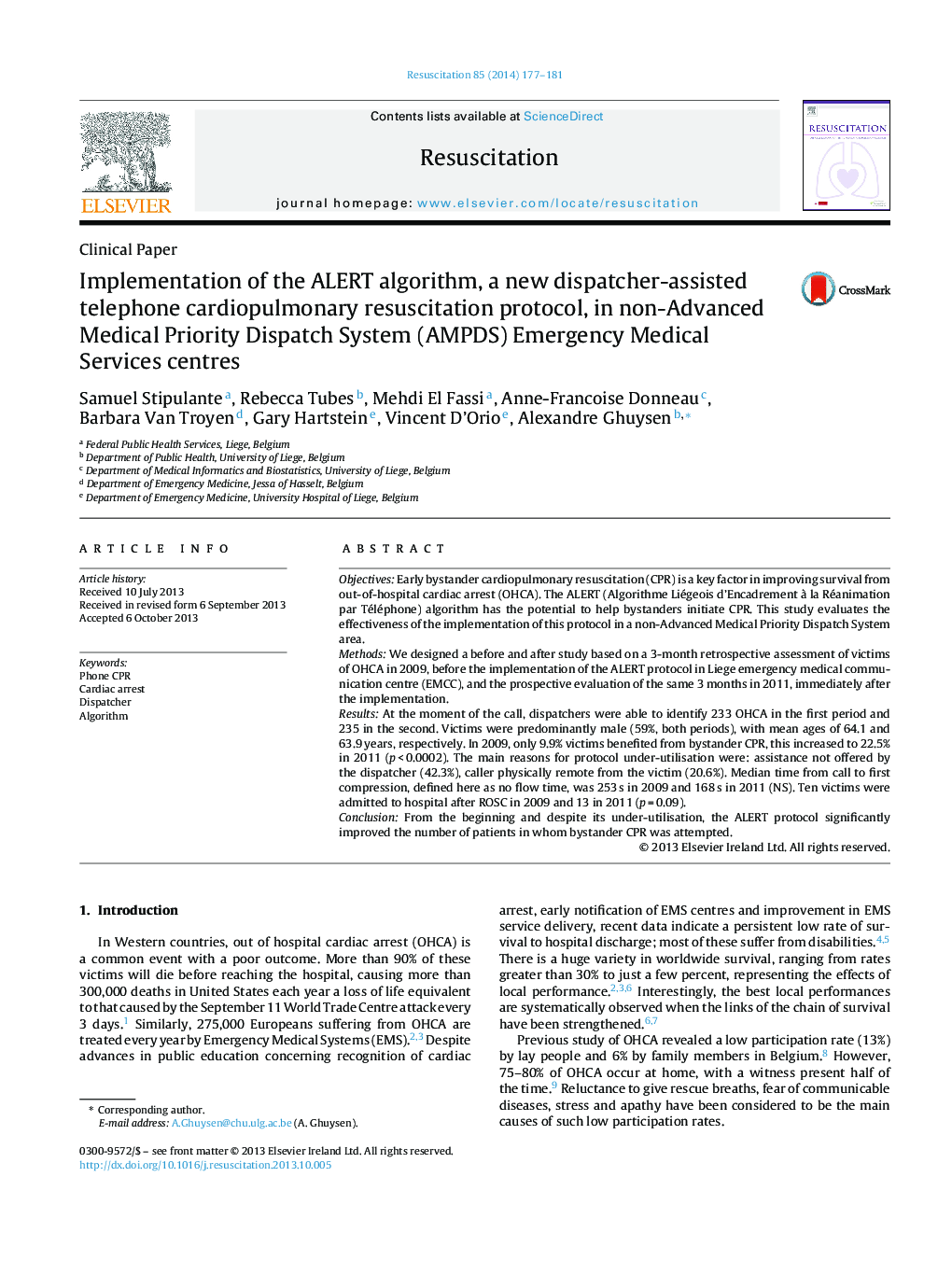| Article ID | Journal | Published Year | Pages | File Type |
|---|---|---|---|---|
| 3008393 | Resuscitation | 2014 | 5 Pages |
ObjectivesEarly bystander cardiopulmonary resuscitation (CPR) is a key factor in improving survival from out-of-hospital cardiac arrest (OHCA). The ALERT (Algorithme Liégeois d’Encadrement à la Réanimation par Téléphone) algorithm has the potential to help bystanders initiate CPR. This study evaluates the effectiveness of the implementation of this protocol in a non-Advanced Medical Priority Dispatch System area.MethodsWe designed a before and after study based on a 3-month retrospective assessment of victims of OHCA in 2009, before the implementation of the ALERT protocol in Liege emergency medical communication centre (EMCC), and the prospective evaluation of the same 3 months in 2011, immediately after the implementation.ResultsAt the moment of the call, dispatchers were able to identify 233 OHCA in the first period and 235 in the second. Victims were predominantly male (59%, both periods), with mean ages of 64.1 and 63.9 years, respectively. In 2009, only 9.9% victims benefited from bystander CPR, this increased to 22.5% in 2011 (p < 0.0002). The main reasons for protocol under-utilisation were: assistance not offered by the dispatcher (42.3%), caller physically remote from the victim (20.6%). Median time from call to first compression, defined here as no flow time, was 253 s in 2009 and 168 s in 2011 (NS). Ten victims were admitted to hospital after ROSC in 2009 and 13 in 2011 (p = 0.09).ConclusionFrom the beginning and despite its under-utilisation, the ALERT protocol significantly improved the number of patients in whom bystander CPR was attempted.
